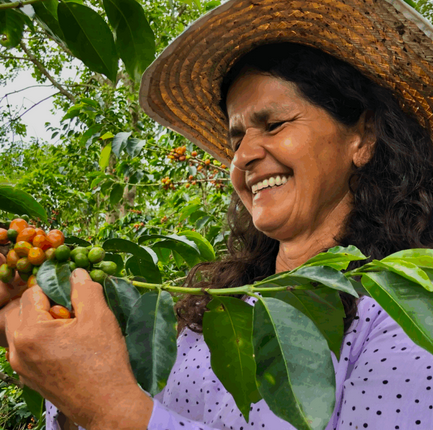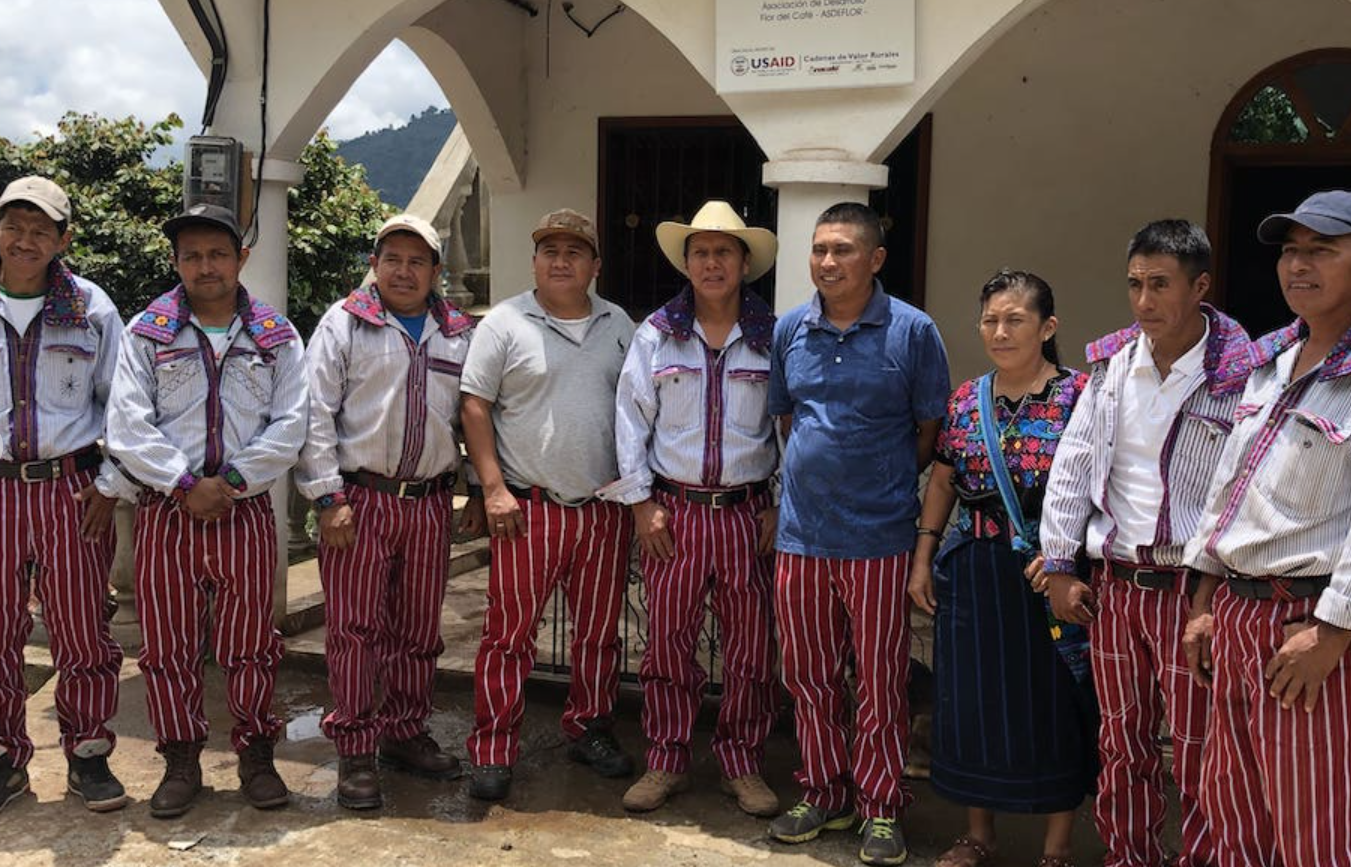A note about processing methods…
Washed (wet process)
Washed process is the more common processing method. Unless otherwise indicated, all our coffees are washed process. This means that after the berries are picked the fruit is removed from the seed via highly turbulent water and stone channels. The seeds are further processed and dried on their own.
vs.
NAtural (dry process)
Natural process coffees involve letting the berry and the seeds dry together and separating the fruit from the seed after the drying process has occurred. This yields an intensely fruit-forward cup of coffee. They often have flavor notes like blueberry pancakes and strawberry wafer cookies. These notes are not subtle, they are very pronounced.
bean menu below…
Colombia ASoBombo
Roast: Medium
Taste:
Colombia Asobombo has distinct notes of dark cherry and chocolate, complemented by a creamy body. Balanced body and acidity, rounding flavors from honey to brown sugar.
About:
Grupo Asociativo El Bombo Pitalito Inza, or Asobombo, was founded by Luis Alfredo Diaz to increase market access and attain fair, sustainable prices for their coffee. This lot was produced by 85 female members of Asobombo who live and farm in Huila. Asobombo’s Women’s Group is focused on strengthening gender equity and creating more opportunities for women and their families to learn about balanced diets, resource allocation and coffee quality improvement. They continue to invest the premiums from their coffee into improving their farms and processing infrastructure and they’re always looking to learn new processing techniques to improve overall quality. This coffee was grown using organic practices by certified organic producers at origin.
Ethiopia Rako washed
Roast: Light
Taste:
Ethiopia Rako is a washed coffee from Kochere, Yirgacheffe that demonstrates a wide but cohesive range of expressions. At lighter roast levels, it shows high clarity with florals, citrus, and bergamot layered over a silky, lactic-like texture. As it develops into medium, the acidity integrates and the cup shifts toward caramelized sugars and candied citrus, with a rounded, creamy mouthfeel. Medium-dark roasts emphasize depth, highlighting dark berry, black tea, and bittersweet cocoa while preserving a smooth sweetness. Taken to dark, the profile concentrates into molasses, spice, and toasted nut, delivering structure and intensity without losing balance. Across all roasts, a syrupy, almost juicy texture remains constant, with wildflower honey, black tea, and lemon serving as anchoring flavors.
About:
Rako is a small kebele (community) in Ethiopia’s celebrated Yirgacheffe region, located within the Kochere district of the Gedeo Zone. Farmers here grow coffee on 1–2 hectare plots, often intercropping with false banana and acacia trees that provide shade and enrich the soil. Coffee is their main livelihood, and deliveries of ripe cherry—carried by foot or motorcycle—go to the Rako washing station. Established in 2017 on 2.5 hectares of land, the station now processes 450–550 tons annually. Pulping, fermenting, washing, and drying are handled with precision, while parchment is carefully stored until milling. Traceability is maintained through lot separation and detailed record-keeping. With high elevation and indigenous varieties, Rako produces smaller beans that embody Yirgacheffe’s hallmark elegance and floral character.
decaf Mexico Rio Blanco
Roast: Light
Taste:
Cane sugar, candied orange, and soft, delicate sweetness
About:
Casa Común is a federation founded in 2015 that unites more than 1,200 producers through two cooperatives, Manos Unidas and Cafetaleros Organizados de Siltepec Nueva Generación. Built on a shared vision of strengthening community ties, empowering smallholders, and ensuring fair, sustainable growth, Casa Común also leads a Youth Coffee Project that inspires young farmers to carry forward Chiapas’ specialty coffee legacy with pride and purpose. This coffee is grown in the lush Sierra Fronteriza region of Chiapas on small family farms rarely larger than three hectares. This lot has been decaffeinated using the sugarcane or ethyl alcohol process, which is a naturally occurring compound found in molasses.
Ethiopia shanta golba natural
Roast: Light
Taste:
Creamy mouthfeel with notes of boysenberry, lavender, and Madagascar vanilla. This is a dry process coffee so those flavor notes are pretty distinguished. You will be able to perceive these flavors.
About:
Ethiopia Shanta Golba Natural is an organically produced, naturally processed coffee produced by over 1200 small-holder farmers living around the town of Daya Bensa in the Sidama region. This coffee was sourced by our partners at Unravel Coffee Merchants and Ardent Coffee export who are pillars in the community—they have built a road to aid in transportation, a local elementary school, an orphanage for children in the community, and the Shanta Golba washing station. Additionally, Ardent provides agronomy training, cherry harvesting, and healthcare for all of the workers at the washing station. Shanta Golba is truly a special place where the feelings of kindness and gratitude are visceral, and where the soil is revered for providing farmers both food and their livelihoods.
Guatemala ASDECAFE
Roast: Medium
Taste:
Dulce de leche, balancing cherry and chocolate for an approachable, rounded cup.
About:
Guatemala ASDECAFE is a sustainable, second-level association founded in 2013 that now represents more than 1,000 producer members across seven cooperatives in Huehuetenango and El Quiché. By joining together, these co-ops share resources like transportation and certification costs, extending the reach of earned premiums. ASDECAFE supports members with technical assistance, trainings, and pre-financing while strengthening access to international markets and long-term buyer relationships. One member co-op, ASDEFLOR, formed in 2012 in Todos Santos, grows certified organic coffee on farms at 1,600–1,800 masl. Working together gives members greater bargaining strength and helps secure better prices and long-term stability.





